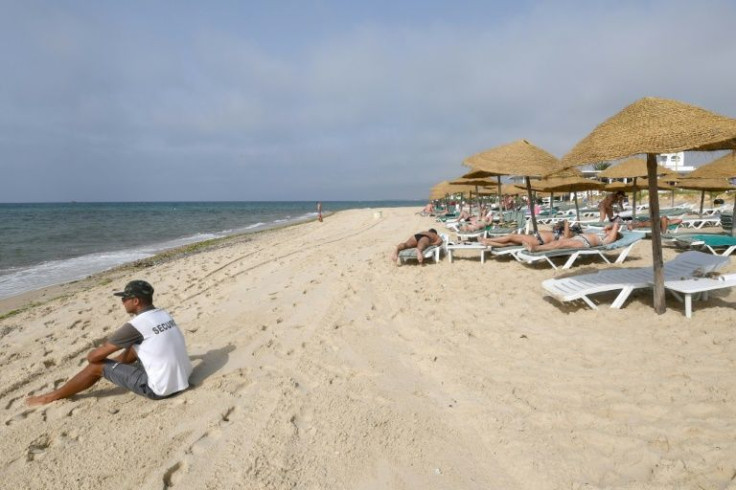Mysterious Slug-Like Creature Washes Up On Shore, Baffles Beachgoers
A mysterious creature that washed up on a beach in Australia has left many beachgoers speculating over its identity.
A curious local on the beach in Sydney's south had shared the images on social media, asking people to identify the creature.
"Does anyone know what this is? Have seen a number of these washed up this week," the Sutherland Shire local wrote on Facebook, according to Yahoo News Australia.
Another woman from the area said she had seen a similar thing, while walking her dog at Darook Beach in Cronulla.
"They are everywhere," she said. "I was also wondering what they are."
Social media users tried to guess what the slug-like creature was, with many comparing it to an "alien."
Yahoo News Australia shared images of the creature, saying that it was a sea hare. Harry Masefield, Aquarist at Sea Life Sydney Aquarium told the news outlet they were also commonly known as sea slugs.
"This one doesn’t look too happy, likely climate change," he said, adding the recent variable weather in Sydney had most likely altered its living conditions.
Sea hares are usually dark purple or green in color and measure the size of a football, according to Britannica. They release a purple dye, much like a squid, and can be extremely harmful to pets. Aquarist Laetitia Hannan from Sea Life Sydney Aquarium said there were many sea hare species, but this one was most likely Aplysia sydneyensis, a local Sydney species.
"We actually have these guys in our rock pool for people to look at and feel as they are super interesting to touch," she said. "They camouflage themselves as rocks to stay safe from other animals eating them."
Professor Culum Brown, from Macquarie University, said sea hares get their toxicity from the algae they eat.
“They are only harmful if you eat them, and even then only sometimes,” he told Yahoo News Australia. “People don’t eat them, but every now and then a dog might try if they find one on the beach. If the individual hare has been eating particular types of algae, it can cause harm to the dog.”






















